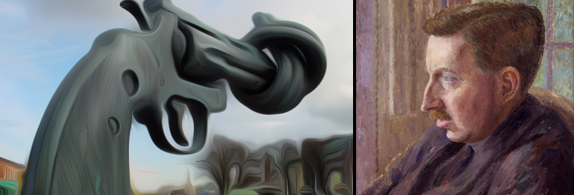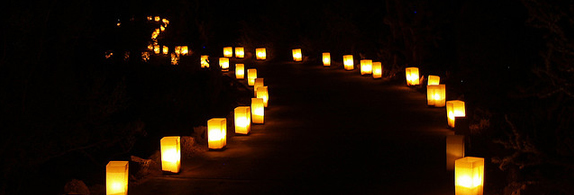Oligarchy and Local Media

Many of us have suspected for years that Big Corporations, Big Ricos with all their PACS and business associations, their monopoly of the media, their majority on the Supreme Court, the Fossil Fuel plutocrats, not to mention the gargantuan military industrial complex, and zillions of Dark Dollars that have made a mockery of elections in America have taken over our country again and run everything, including the doings in New Mexico, as an oligarchy of the elite and malodorous few dictating policy, programs and perspectives to the miserable many, made mindless by the masterminds of Big Propaganda.
Many of us in the small local media here have sensed this for years. “News” coming to us from national and corporate media monopolies is so managed and redacted that Big Media has become a house organ, much like Pravda, of the Oligarchs.
We also have had the terrible feeling that tentacles of the Oligarchs were wrapping around so-called public news like the shallow mush on PBS and NPR, and that the battle against “net neutrality” is an effort to pinch off one of the few open sources of information left free of control – local internet news and its struggling kin on progressive radio and in local print publications.
In fact I see local news, information and opinion in all its various and struggling forms in New Mexico and across the country as the last bastion of what used to be called The Fourth Estate, that unofficial counterbalancing of those with power in office or on the court, protected by the Constitution from government censorship but not protected from being coopted or, worse, drowned out by Big Money and its Corporate Speech.
Those were our suspicions and now we find that our suspicions were not off base at all.
A by now famous study by professors at Princeton University and Northwestern University confirms that in the last 30 years or so America has become an oligarchy and that our democracy has functionally disappeared. The study is famous by virtue of having gone viral on the internet. And its fame, therefore, is not far reaching because the Media Monopoly hardly covered it at all.
Although the study never mentions the word “oligarchy,” the picture of rule in the United States that it presents is oligarchic. Oligarchy is an Ancient Greek term describing government ruled by an elite body of the entitled who generally oppose democracy and will do virtually anything to retain their power. They are every bit as wicked and corrupt as any other tyrant.
The study entitled “Testing Theories of American Politics: Elites, Interest Groups, and Average Citizens” analyzed the history of policy formation from 1981 to 2002. Its authors are Princeton’s Martin Gilens and Northwestern’s Benjamin I. Page. They concluded that the average citizen’s opinion has had a “near zero” impact on public policy during the last 31 years, since the beginning of the Reagan administration. “The preferences of economic elites have far more independent impact upon policy change than the preferences of average citizens do.” Majoritarian democracy is a thing of the past and it’s been replaced by “economic elite domination.”
In an interview with Talking Points Memo, Gilens remarked that “contrary to what decades of political science research might lead you to believe, ordinary citizens have virtually no influence over what their government does in the United States. And economic elites and interests groups, especially those representing business, have a substantial degree of influence. Government policy-making over the last few decades reflects the preferences of those groups – of economic elites and of organized interest groups.”
Gilens said that this oligarchic situation arose for two reasons. First “is the rule of money in our political system, and the overwhelming rule that affluent individuals and organized interests play, in campaign finance and lobbying.” Secondly, Gilens said “is the lack of mass organizations that represent and facilitate the voice of ordinary citizens. Part of that would be the decline of unions in the country which has been quite dramatic over the last 30 to 40 years. And part of it is the lack of a socialist or a worker’s party.”
In my view this concentration of power in the hands of the ricos, and at the expense of the middle, lower middle, and lower economic classes, has been aided immeasurably by the monopolization of the media by corporate oligarchs who propagandize for the rule of the elite.
It’s not inconsequential that six corporations now control 90% of the media in America. – GE (Comcast, NBC), NEWS-CORP (Wall Street Journal, Fox News), DISNEY (ABC, ESPN), VIACOM (MTV), TIME WARNER (CNN, HBO, Time), and CBS (Showtime, Smithsonian Channel, 60 Minutes).
And the rest of us in local media have to battle local media giants, like the Albuquerque Journal and locally staffed national TV and radio news affiliates, for advertising revenue and audience time. It’s ever thus.
But in the Albuquerque/ Santa Fe area where more than half the people in New Mexico reside, local media is in a remarkable creative upswing while still being in the economic doldrums. The Santa Fe Reporter, THE magazine, the Santa Fe New Mexican, Local IQ, Primetime, Weekly Alibi, the ABQ Free Press, and Green Fire Times are all making their presence felt, and I’m sure I’ve left some out. Even local TV is having a news resurgence, especially KRQE 13 and KNME TV. Online there’s the New Mexico Compass, New Mexico Politics with Joe Monahan, New Mexico In-Depth, New Mexico Telegram, New Mexico Mercury and I’m sure others have appeared that I don’t know about yet.
The point is that alternative media in our state is robust and doing the job that oligarchic media won’t and probably never will do. And alternative media are doing it largely by the skin of their teeth financially, though some are more prosperous than others.
And some of them even operate with the model of the rebel I.F. Stone’s Weekly in mind from time to time. From l956 to l971, Izzy Stone’s Weekly operated on the assumption that “all governments lie” and that it was the job of the Fourth Estate to say so and uncover what the powerful didn’t want known. He offended most everyone at one time or another and used to say that he was “of the left but a noncomformist” who railed against the “gutter paranoia” of witch hunts and racism, the cruelty of poverty and any encroachment by power elites, or anyone else, on the First Amendment and the Fourth Amendment.
Our alternative local media does some fine political writing, uncovers major stories, watchdogs far-reaching trends in climate, water management, pollution and the economy. It often takes the side of the homeless, children in crisis and those suffering from violence and the boot of the powerful.
It’s a good time to be in this business in New Mexico. As we watch oligarchic news descend ever more deeply into infotainment and propaganda, as we watch even the AP disguise its implicit right wing bias, as we turn off our TV’s and start reading again on screens, or on paper, trying to learn more about the local issues that matter to us and our neighbors personally, we come to understand that there are many writers, reporters, and editors in New Mexico working hard to uphold the highest standards of their trade, often in financial straits close to penury.
I am thankful for all of them.
Thanksgiving 2014

Sometimes life gives you exactly what you need. This year it was a quotation from English novelist and political philosopher E.M. Forster.
He wrote, “What about force, though? While we are trying to be sensitive and advanced and affectionate and tolerant, an unpleasant question pops up: does not all society rest on force?” He answers that it does but that this “dilemma does not worry me as much as it does some….[A]ll creative actions, all the decent human relations, occur during the intervals when force has not managed to come to the front. These intervals are what matter. I want them to be as frequent and as lengthy as possible, and I call them “civilization.” And he then goes on to say that force “gets out sooner or later, and then it destroys us and all the lovely things we have made. But it is not out all the time, for the fortunate reason that the strong are so stupid.”
Forster inspires me because he sees “force” for what it is, a monster that must be contained. Force includes everything from bullying to thuggery to propaganda to sexism to racism to war. Force knows, and permits, no bounds. It is the antithesis of everything creative, loving, and kind. It is the ruination of religions and cultures and people. It has made and will continue to make the whole world into a killing field. That’s why it must always be kept in its box, as Forster said. For when it gets out, vicious stupidity crushes everything in its way.
I found that quotation in a l938 essay “What I Believe.” It was referenced in a superb biography of Forster written by Wendy Moffat entitled A Great Unrecorded History. Forster published his last novel, Passage to India, in 1924. He never wrote another novel again but continued writing as an editorial thinker, essayist, political philosopher and letter writer almost until his death at 90 in 1970.
In “What I Believe” Forster looks at the world from the perspective of those marginalized by power elites and the mainstream they uphold. I see him as someone who would have found New Mexico to be a state of mind he could have flourished in. Forster was clearheaded enough to know exactly what he thought and to say it in such a way as to be, quite literally, mind expanding. I recommend its epicurean tolerance and optimism this holiday season.
Forster gives “two cheers” to democracy because unlike authoritarian or oligarchic regimes it “admits variety” and “permits criticism.” But he really doesn’t think any form of government is worth the full three cheers.
Democracy, he wrote, is “less hateful than other contemporary forms of government, and to that extent it deserves our support. It does start from the assumption that the individual is important, and that all types are needed to make a civilization. It does not divide its citizens into the bossers and the bossed – as an efficiency-regime tends to do.”
He goes on to say that “the people I admire most are those who are sensitive and want to create something or discover something, and do not see life in terms of power, and such people get more of a chance under a democracy than elsewhere.”
He says that although “force” is, “alas! the ultimate reality on this earth it does not always get to the front.” And when it’s contained, he wrote, “such interludes” are the “chief justification for the human experiment. I look the other way until fate strikes me. Whether this is due to courage or to cowardice in my own case I am not sure. But I know that, if men had not looked the other way in the past, nothing of any value would survive. The people I respect most behave as if they were immortal and as if society was eternal. Both assumptions are false; both of them must be accepted as true if we are to go on eating and working and loving, and are to keep open a few breathing-holes for the human spirit.”
“And yet,” he wrote, “we need not despair, indeed, we cannot despair; the evidence of history shows us that men have always insisted on behaving creatively under the shadow of the sword; and they have done their artistic and scientific and domestic stuff for the sake of doing it, and that we had better follow their example under the shadow of the aeroplanes” or whatever discounts and oppresses us.
Here’s to a peaceful Thanksgiving, to counting our blessings, and to keeping open as many breathing-holes for the human spirit as we can.
Why We Love New Mexico - Tradition

While we’re not quite a tradition just yet, the New Mexico Mercury has endured lean times long to enough to feel overwhelmingly grateful as we move into the beginnings of our third year of existence. Our publisher, Benito Aragon, and I feel an enormous up swelling of optimism and empowerment when we think of the many loyal subscribers and supporters who keep us going (We need many more.), the over 190 contributors who have graced our pages since 2013, and the over 12,000 unique viewers per month who come and stay with us as readers and come back and back for more many tens of thousands of times a month.
That’s one of the reasons we love New Mexico. If things matter to us, we work hard to keep them around. We respect tradition. And one of New Mexico’s great traditions is our tendency to support each other, no matter how hard up we are. We value variety. Despite long feuds and grudges, we prize toleration and have a genuine live and let live ethic when we’re at our best. How could so many of us with so many differing backgrounds and worldviews co-exist if we didn’t?
The great tradition of New Mexico is that of toleration. I don’t mean that everyone loves everyone else. Nor do I mean that we are a state without profound differences, cultural fault lines, and economic plate tectonics that occasionally create social upheavals. I know our history has been as full of violence and injustice as anywhere else on this planet. But it seems to me – after living and writing here for more than 55 years – that all the many cultures of our state have a shared tradition that makes courtesy and respect an ideal to follow, if not always achieve.
I guess another way of putting it is that we have a tradition of friendliness here when we’re living up to our ideals. If you’re kind, or pleasant, or interested in someone else, or even just passingly civil, chances are others will treat you, as we say, likewise or iqualmente. And on good days or bad, there’s nothing quite as uplifting and heartening as that.
(Photos: Newspapers by Jon S / CC; Non-violence sculpture from Cybermagic / CC; Luminarias by Chris Dodson / CC)




Responses to “Provincial Matters, 11-24-2014”